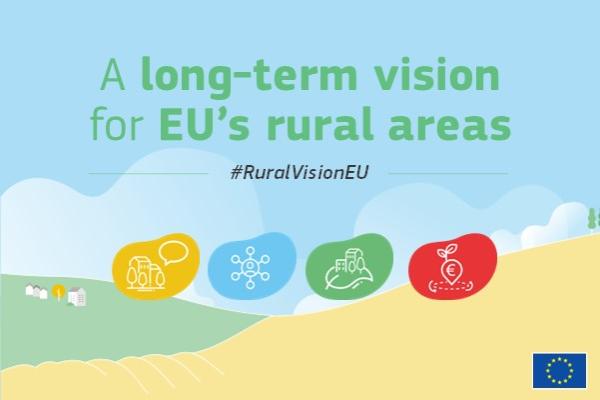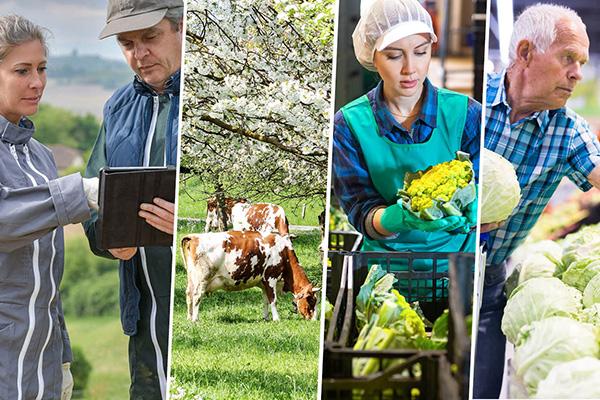Monitoring committees
Each country receiving IPARD financial assistance must establish an IPARD III monitoring committee.
The monitoring committee is to be composed, in a balanced proportion, of representatives of relevant national authorities and bodies and other stakeholders, including economic, social and environmental partners and civil society.
The main roles of the IPARD III monitoring committee are:
- to review the effectiveness, efficiency, quality, coordination and compliance of the implementation of the programme;
- to examine the progress towards meeting the objectives of the programme.
Networks for rural development
EU CAP Network
The EU’s Common Agricultural Policy (CAP) Network is a forum through which National CAP Networks, organisations, administrations, researchers, entrepreneurs and practitioners interested in agriculture, forestry and rural areas can share knowledge and information (e.g., via peer-to-peer learning, the exchange of ideas, knowledge and best practices). It supports:
- the design and implementation of CAP Strategic Plans,
- the exchange of innovation and knowledge, including as part of the Agricultural European Innovation Partnership (EIP-AGRI),
- the improvement of skills,
- the strengthening of Agricultural Knowledge and Innovation Systems (AKIS) approaches, and
- the evaluation and monitoring of the CAP.

The EU’s Common Agricultural Policy (CAP) Network has as objective to optimise the flow of information about agriculture and rural policy within the EU.
IPARD encourages the establishment of activities similar to national networks for rural development in candidate countries via the 'technical assistance' measure.
Rural networks for local LEADER initiatives
The rural networks for rural development play a significant role in promoting and implementing LEADER initiatives supported by IPARD. The main goal of LEADER – an integrated territorial development tool – is to bring together a wide range of multi-sectoral private and public stakeholders to form local action groups (LAGs). These groups establish their local development strategies to improve community development, enhance the social capital and contribute to economic, social, cultural and environmental advances of local rural areas.
The list of EU local action groups provides contacts and examples of successful LEADER development initiatives in the EU.
IPARD contribution to the European Green Deal
Beneficiary countries are committed to work towards ensuring transformation of the agriculture sector (the green and digital transition) to minimise its negative environmental and climate impact and safeguard affordable and healthy food for citizens and export markets. IPA rural development programmes (IPARD) will be instrumental in assisting beneficiary countries in achieving these goals.
The IPA III legal framework lists sustainability as one of its key principles. This is also reflected in the objectives for IPA assistance for rural development, which include:
- the need to improve the sustainability of on-farm production while providing a better response to societal demands for safe, nutritious and sustainable food,
- to mitigate and adapt to climate change, foster sustainable management of natural resources and contribute to the protection of the environment.

The European Green Deal is an EU’s growth strategy towards a modern, climate neutral, resource-efficient, and competitive economy, with no net emissions of greenhouse gases by 2050 and where economic growth is decoupled from resource use.
The IPARD III framework provides for a number of measures with the potential to respond to these objectives as well as to the overall objectives and targets set in the Green Deal and the Green Agenda for the Western Balkans.
Among the IPARD III measures, two relate entirely to environmental protection and improvement and to climate change mitigation and adaptation:
- the agri-environment-climate and organic farming measure,
- the measure on the establishment and protection of forests.
Under these measures, the recipients undertake actions that go beyond legal obligations and, as such, deliver additional value for the environment and climate.
IPARD III investment measures offer great potential to promote the green transition. Under these measures, support can be granted for physical investments that:
- align with the EU standards (environment, animal welfare, food safety),
- improve the environmental performance of agricultural holdings,
- provide the infrastructure for better waste management and the development of rural areas,
- invest in renewable energy and the circular economy.
The Green Deal and complementary Green Agenda for the Western Balkans make it even more evident that long-term sustainability and competitiveness of the agricultural sector depend on adequate consideration given by the sector to environmental and climate aspects, such as soil compaction, erosion, organic matter content, nutrients leakage, use of chemical inputs, and impacts of farming on biodiversity and landscape.
IPARD in the field
Examples of EU-funded projects
The EU provides support through IPARD funding to the Western Balkans and Türkiye in the field of agriculture and rural development.


